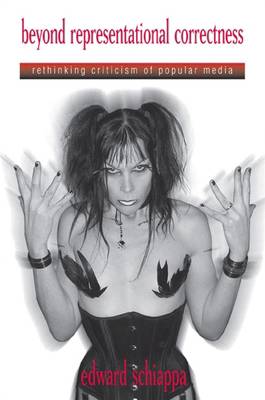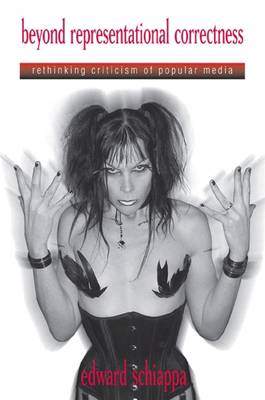
Door een staking bij bpost kan je online bestelling op dit moment iets langer onderweg zijn dan voorzien. Dringend iets nodig? Onze winkels ontvangen jou met open armen!
- Afhalen na 1 uur in een winkel met voorraad
- Gratis thuislevering in België vanaf € 30
- Ruim aanbod met 7 miljoen producten
Door een staking bij bpost kan je online bestelling op dit moment iets langer onderweg zijn dan voorzien. Dringend iets nodig? Onze winkels ontvangen jou met open armen!
- Afhalen na 1 uur in een winkel met voorraad
- Gratis thuislevering in België vanaf € 30
- Ruim aanbod met 7 miljoen producten
Zoeken
Beyond Representational Correctness
Rethinking Criticism of Popular Media
Edward Schiappa
Paperback | Engels
€ 53,45
+ 106 punten
Omschrijving
Representational correctness describes an implicit set of norms, including accuracy, purity, and innocence, that guide much of popular media criticism. In this provocative book, Edward Schiappa argues that representational correctness is unproductive, antagonistic to audience research, and typically disconnected from relevant social psychological or mass communication theories. Analyzing criticisms of such television shows as Will & Grace and Queer Eye for the Straight Guy, Schiappa argues that the norms of representational correctness can cause critics to miss the positive work such shows perform in reducing prejudice. He contends that too many critics focus on isolated scenes or interactions that perpetuate a stereotype without considering the larger work that films and television shows can accomplish. Schiappa concludes that pop culture critics need to engage in more audience research, draw from relevant research in social psychology, praise positive representations and programming, and promote critical media literacy in both classroom and public pedagogy.
Specificaties
Betrokkenen
- Auteur(s):
- Uitgeverij:
Inhoud
- Aantal bladzijden:
- 227
- Taal:
- Engels
Eigenschappen
- Productcode (EAN):
- 9780791474242
- Verschijningsdatum:
- 27/03/2008
- Uitvoering:
- Paperback
- Formaat:
- Trade paperback (VS)
- Afmetingen:
- 153 mm x 229 mm
- Gewicht:
- 317 g

Alleen bij Standaard Boekhandel
+ 106 punten op je klantenkaart van Standaard Boekhandel
Beoordelingen
We publiceren alleen reviews die voldoen aan de voorwaarden voor reviews. Bekijk onze voorwaarden voor reviews.











